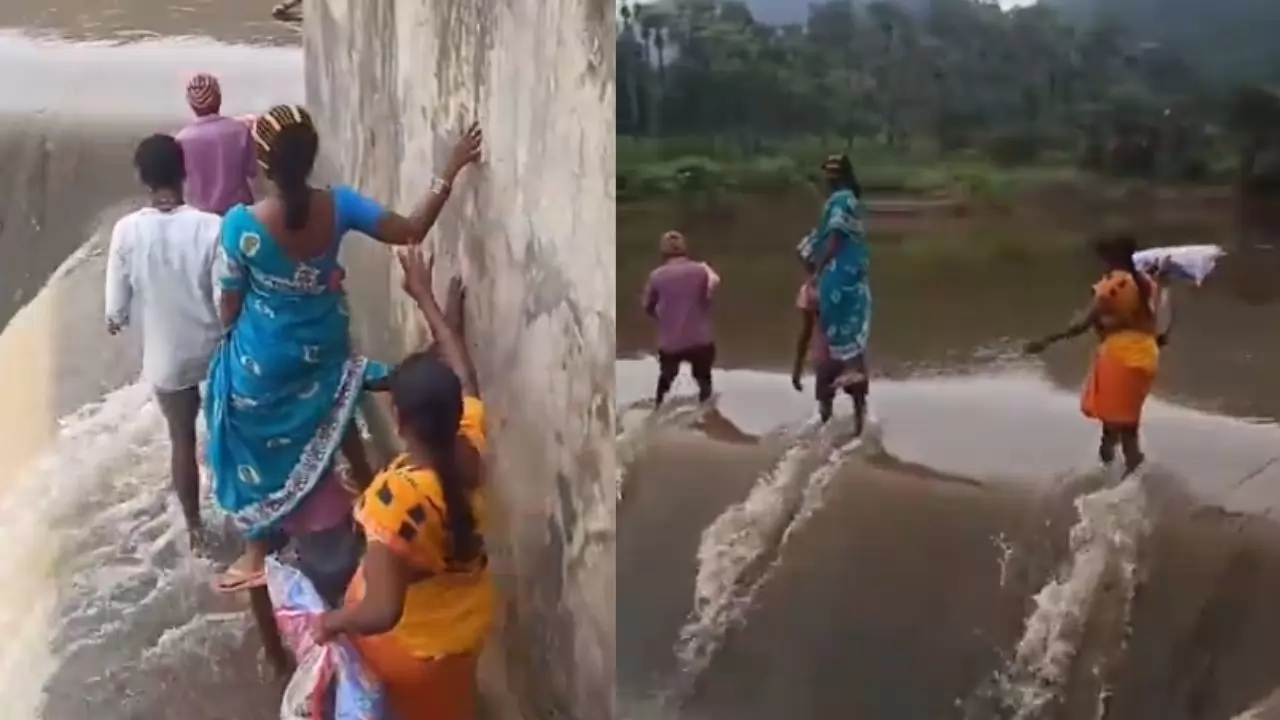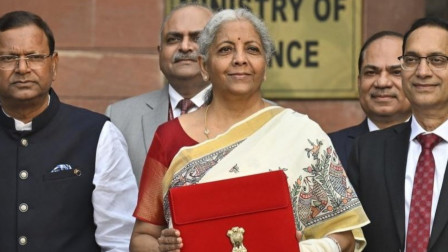
Pregnant woman carried on shoulders (X/Vikram)
In a heart-wrenching incident has gone viral on social media platforms that underscores the dire challenges faced by rural communities, a pregnant woman was forced to rely on her family to reach a hospital in a remote village of Andhra Pradesh. The event, which highlights the urgent need for improved infrastructure, took place in an area that is severely lacking in road connectivity.
In the video, it can be seen that due to the absence of accessible roads, family members had no choice but to carry the expectant mother on their shoulders for several kilometers, navigating through rough and uneven terrain. Disturbing visuals from the scene capture the sheer determination of the relatives, who took turns bearing the weight of the woman as they maneuvered along a narrow path, desperately seeking medical assistance.
गर्भवती महिला को कंधे पर लाद कर हॉस्पिटल ले जाया जा रहा है।
— VIKRAM (@Gobhiji3) September 27, 2024
घटना आंध्र प्रदेश की है।
यह है साहेब का विकास? pic.twitter.com/lRleTGirdo
Soon after the footage surfaced on social media, users have voiced their frustrations over the inadequate infrastructure that forces them into such precarious situations during medical emergencies. Local residents have expressed their dismay at the repeated pleas for better road connectivity, which have seemingly fallen on deaf ears. This incident serves as a glaring reminder of the critical gaps in essential services that rural populations often face.
After an arduous trek, the woman was finally brought to the nearest hospital, where she received the necessary medical attention. Fortunately, her condition has been reported as stable, alleviating some immediate concerns. However, this alarming incident has ignited renewed demands for improved infrastructure and healthcare facilities in the remote areas of Andhra Pradesh, where basic access to medical services remains a significant issue.
The plight of this pregnant woman is a call to action for local authorities to prioritize infrastructure development and ensure that such emergencies do not endanger the lives of vulnerable individuals in rural communities.








Copyright © 2026 Top Indian News
